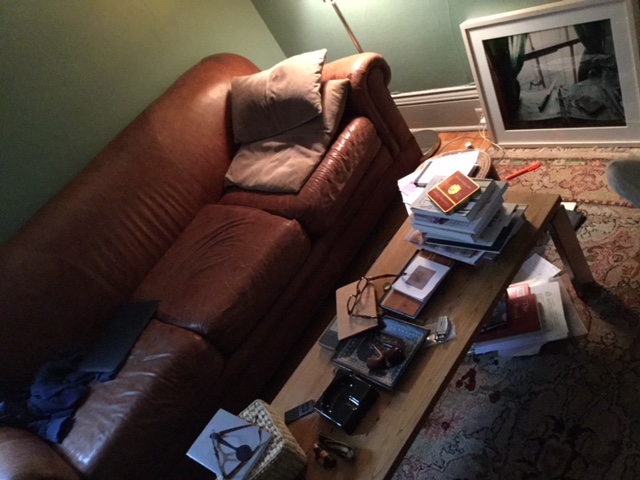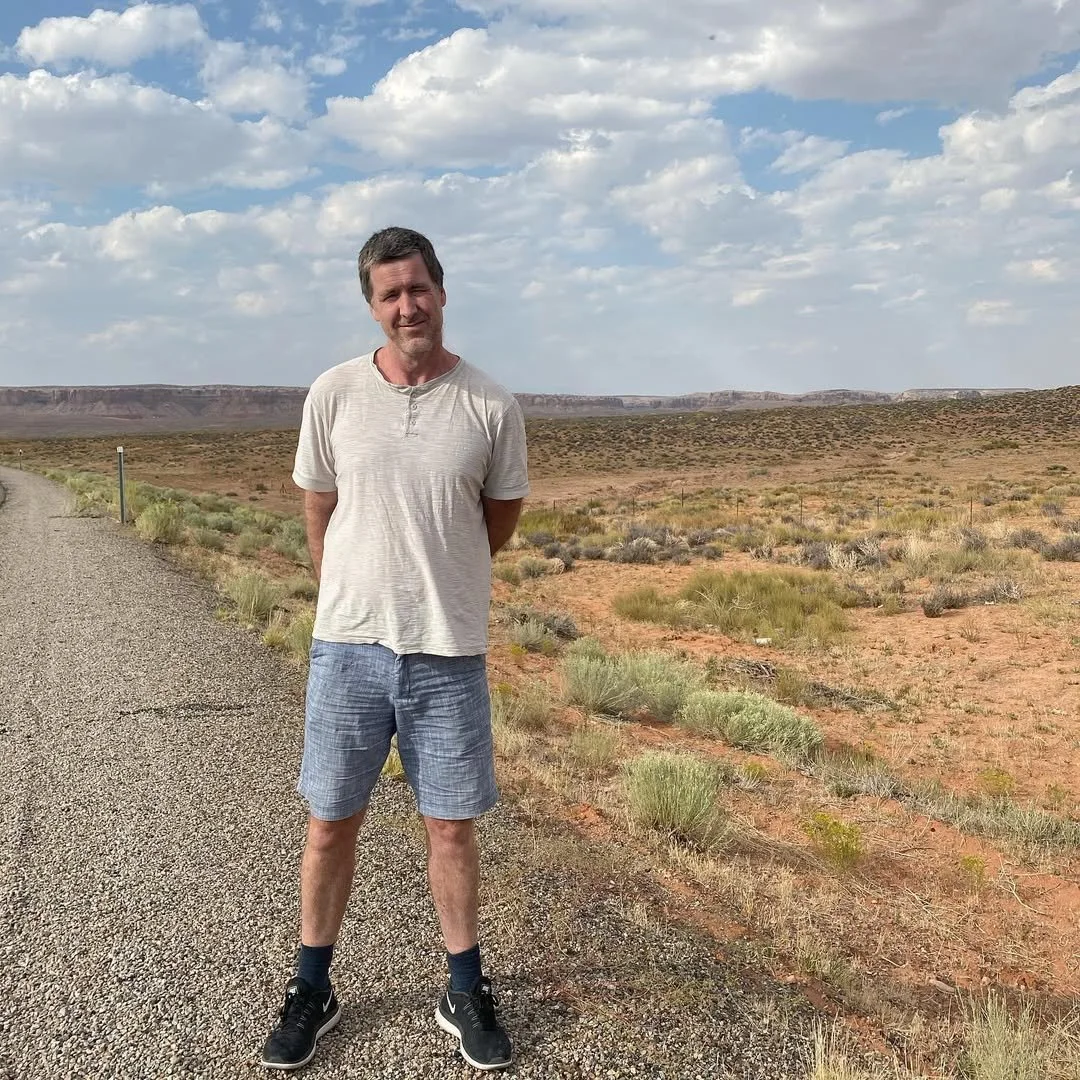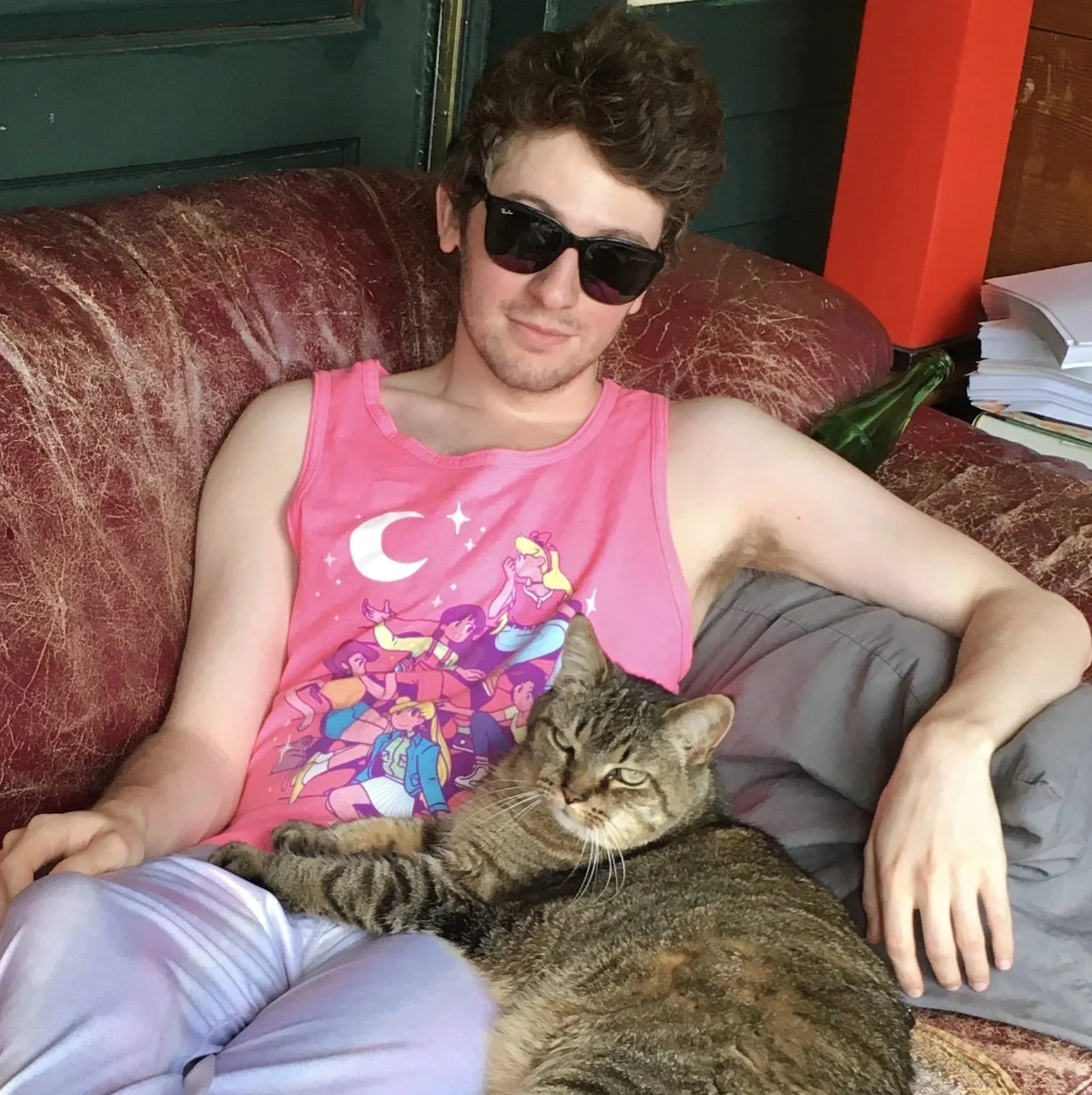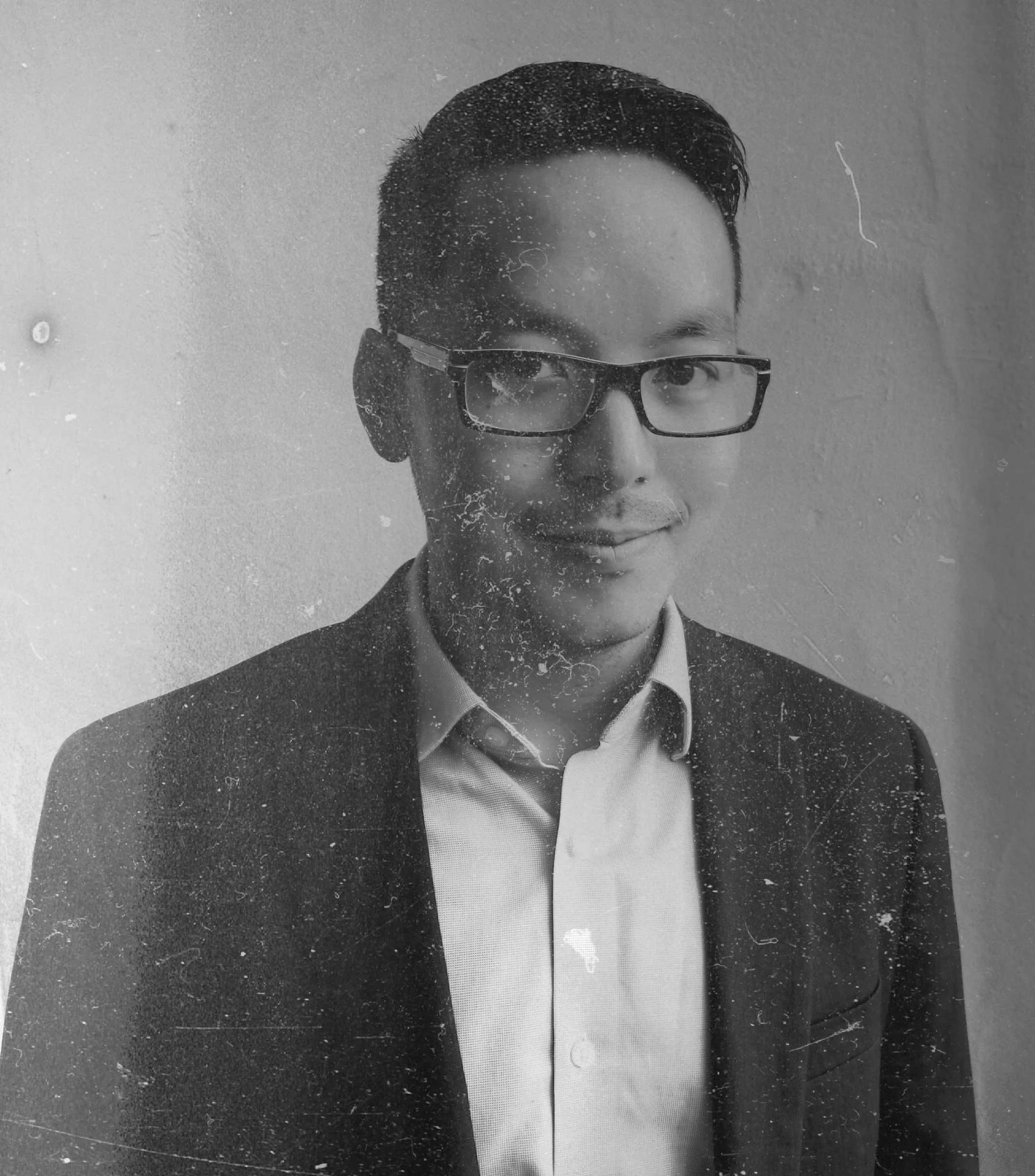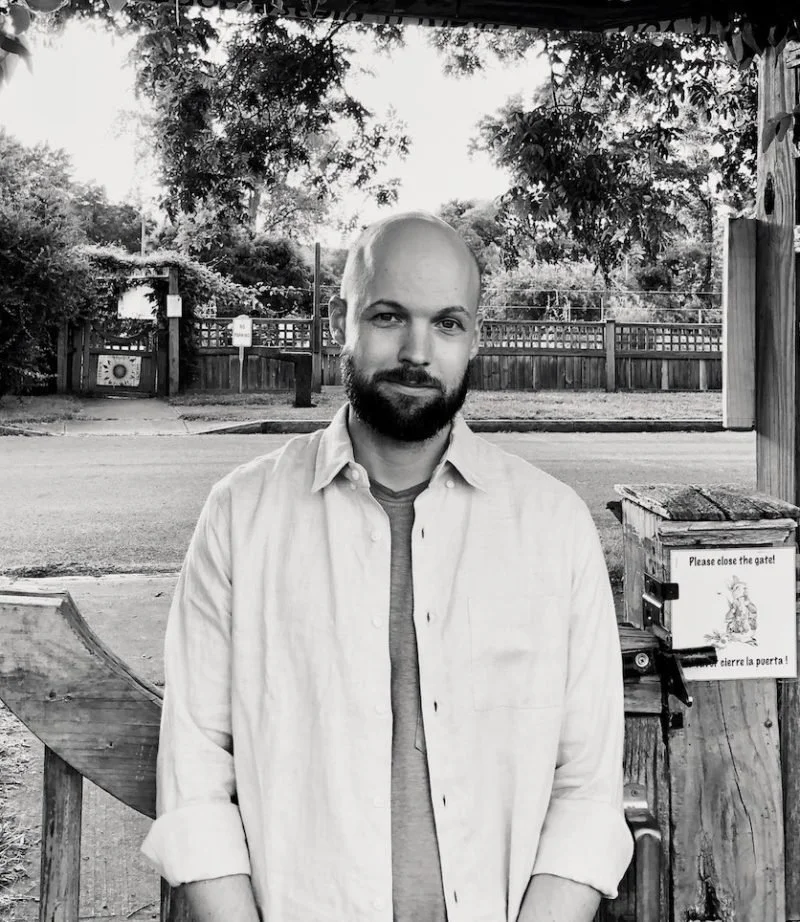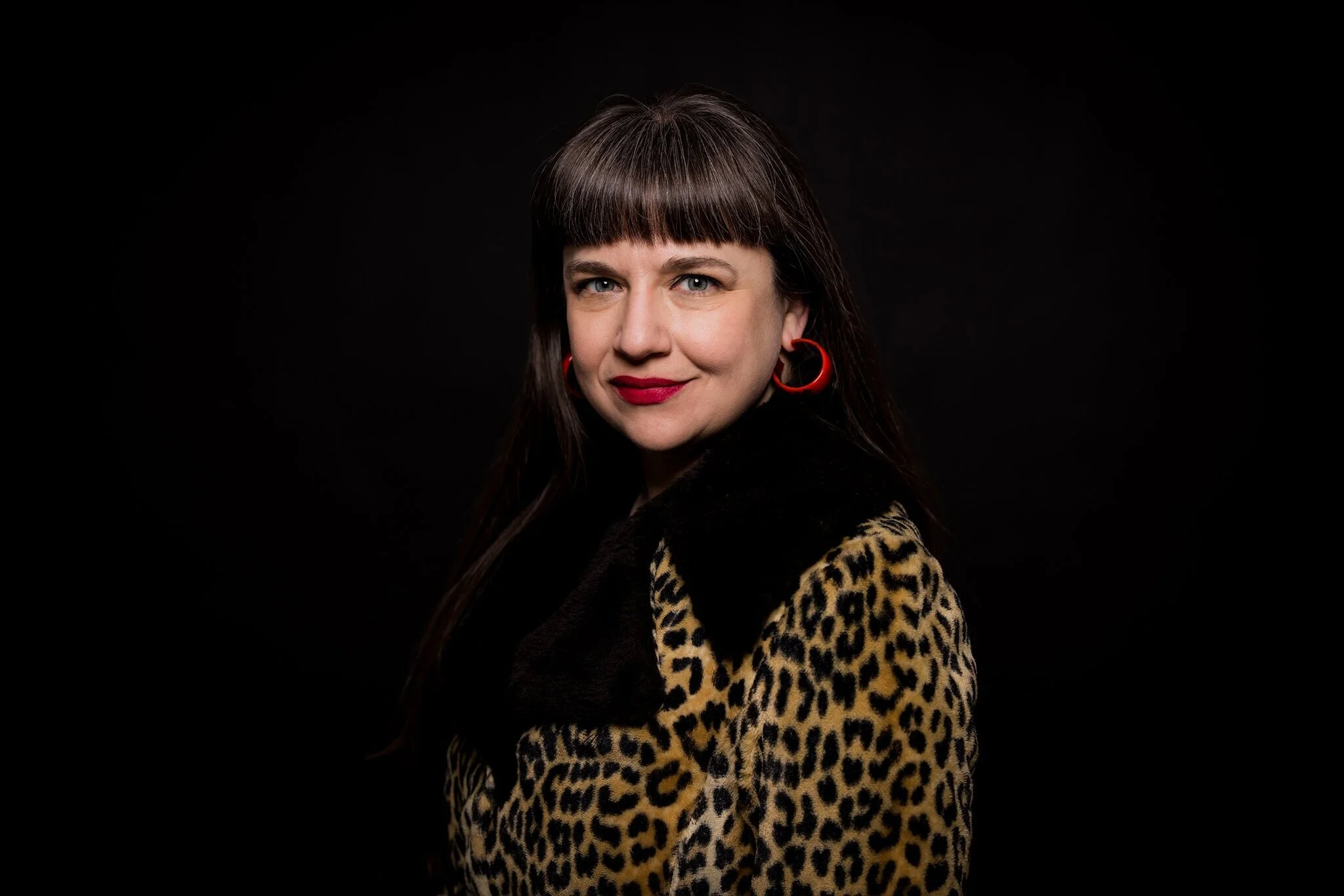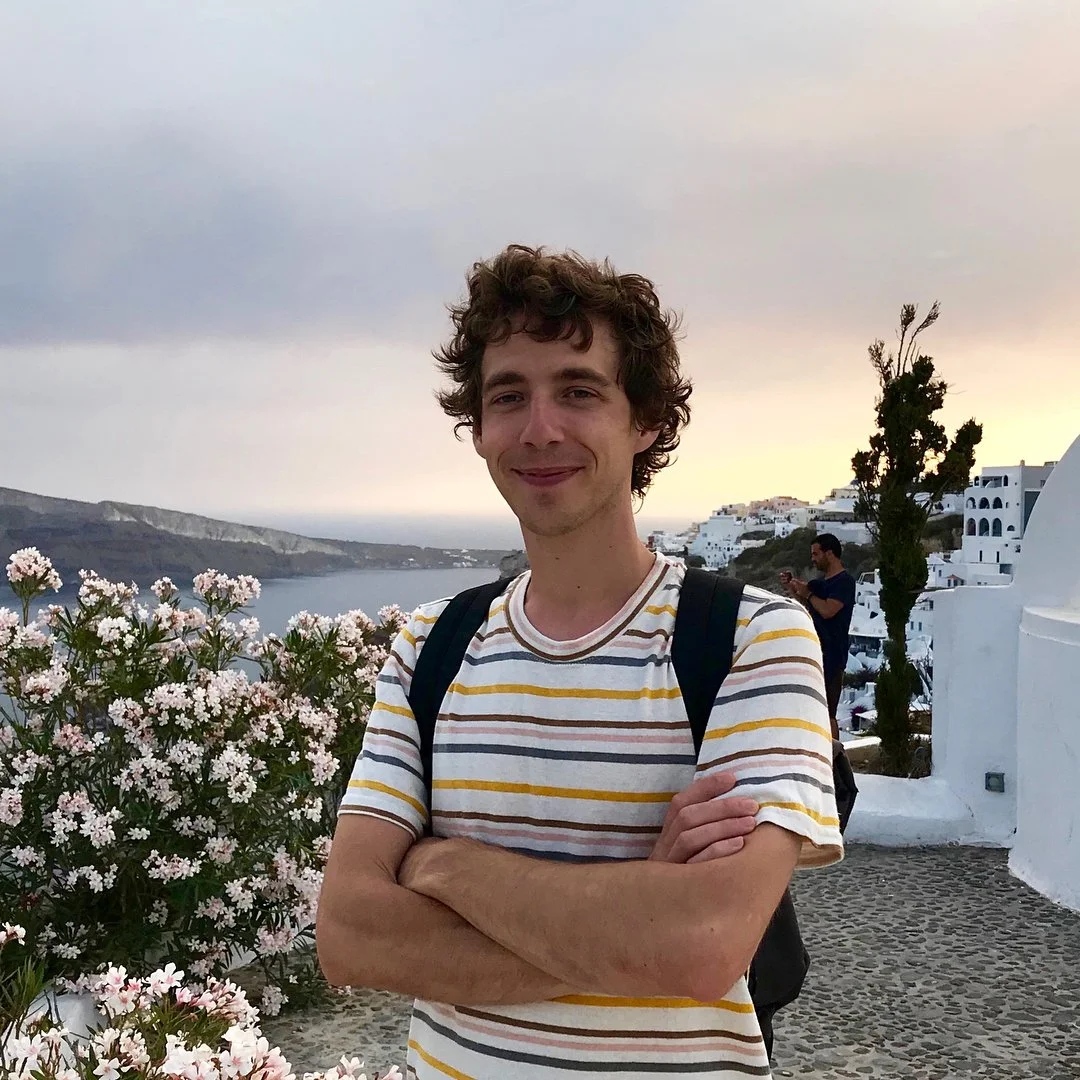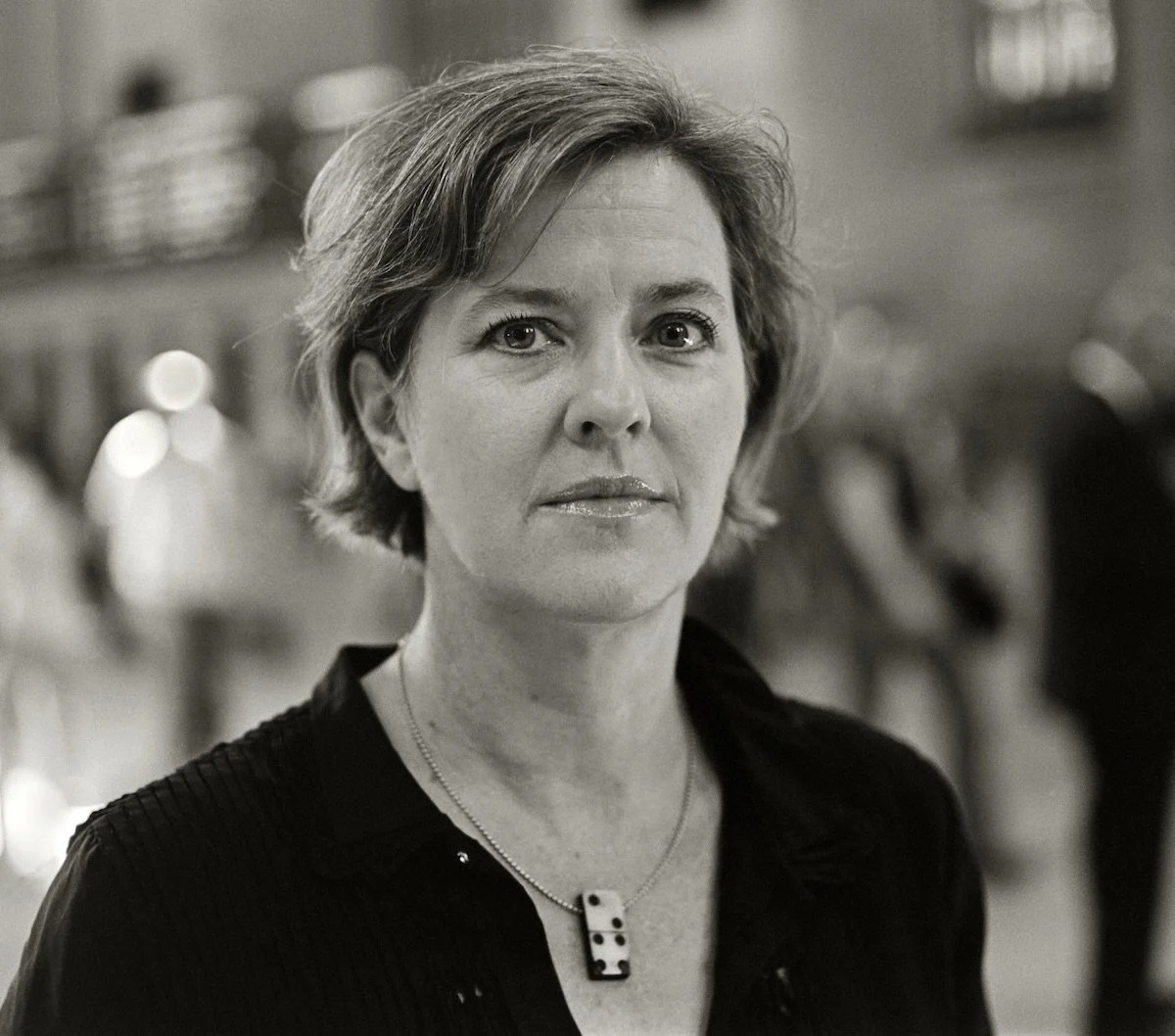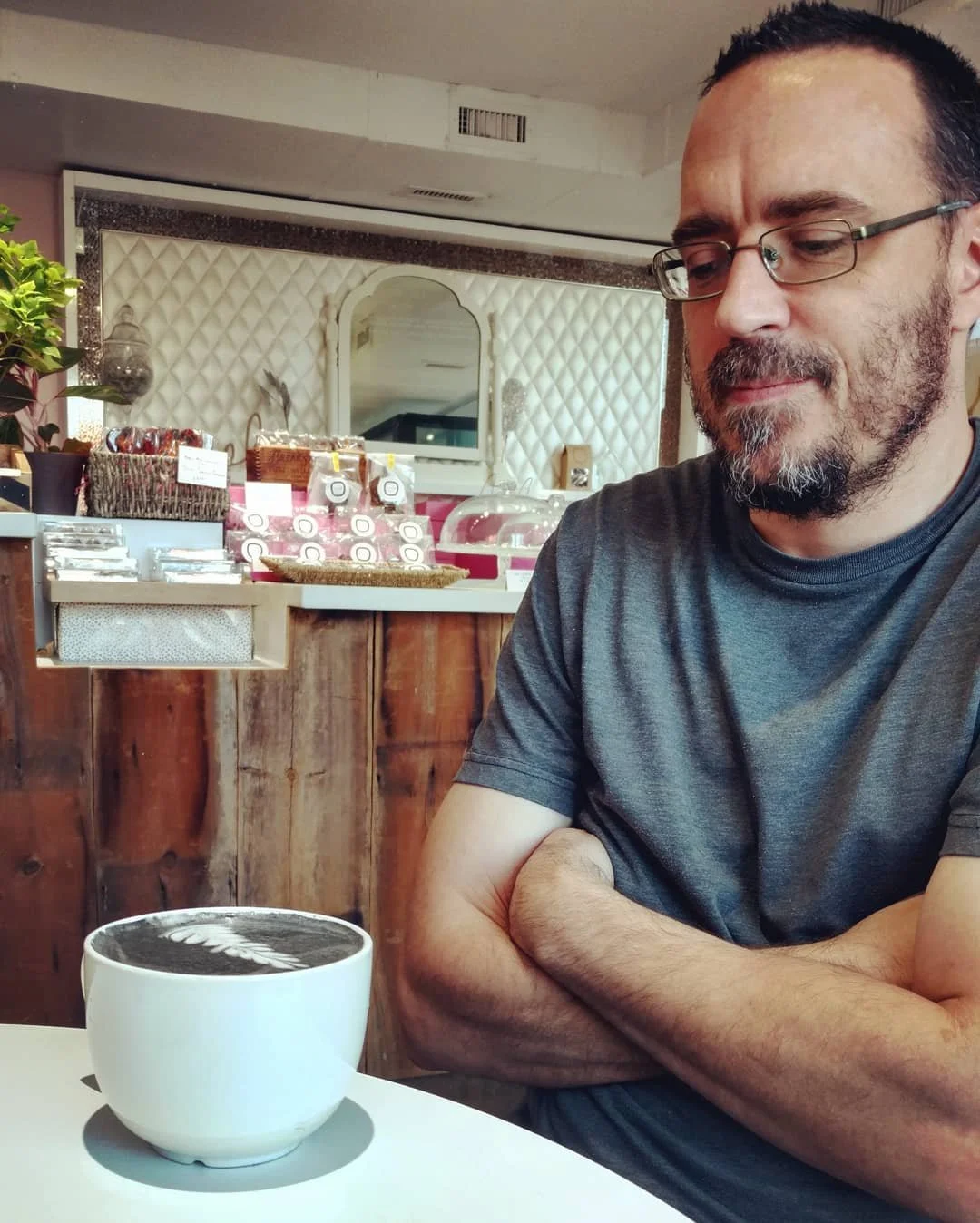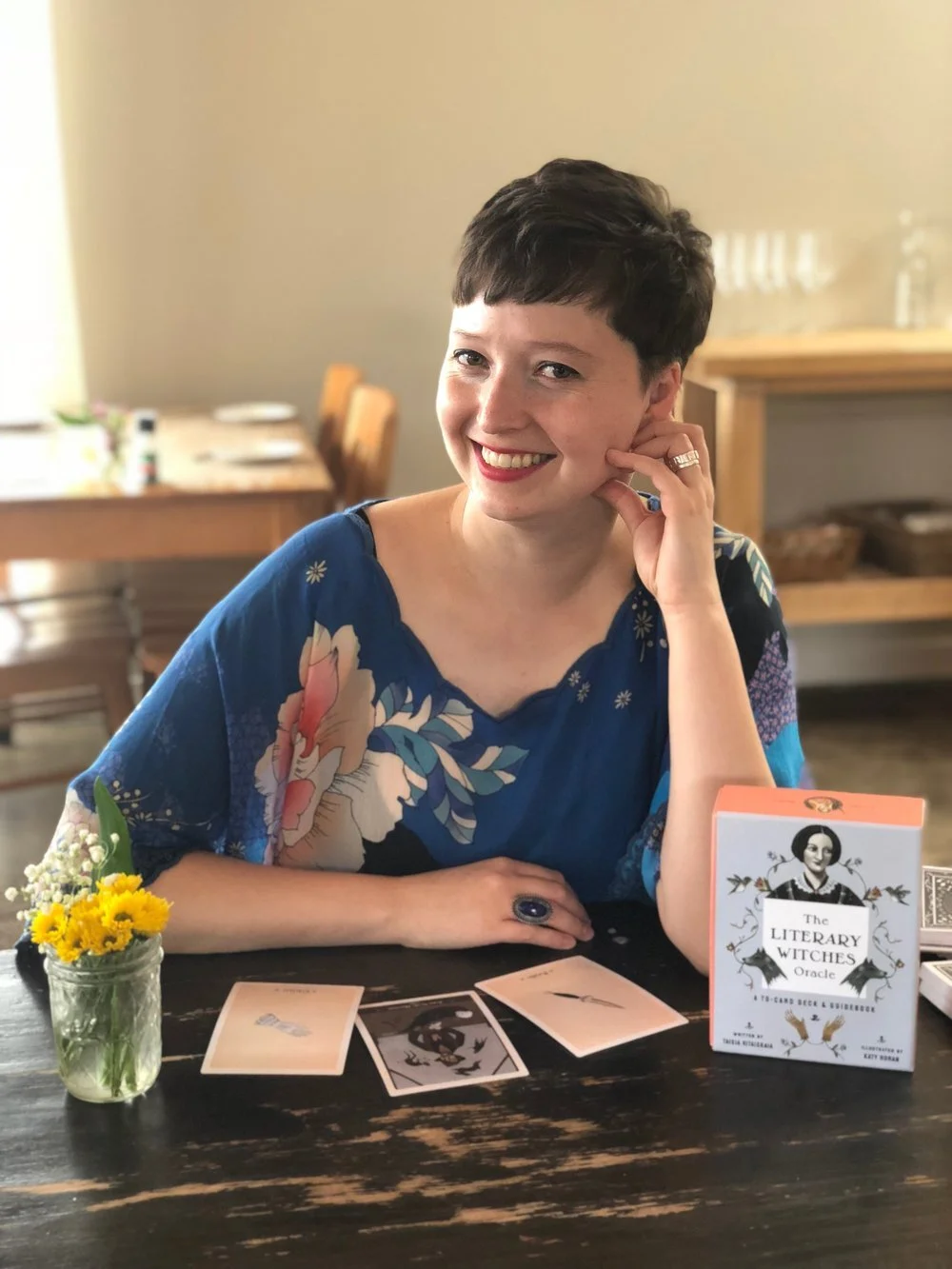Poet Michael Bazzett didn’t publish his first book until he was 48. In the four years that have followed, he’s released two additional collections as well as a translation. Stepping inside of the Minnesota resident’s poems is a bit like visiting an unfamiliar dream. Often narrative in style, his pieces read like tiny fables of that soak in natural elements and comment on the unpredictable human condition. Packing a punch while providing a new perspective. Reading through a collection will have you nodding, chuckling, reaching for a tissue as well as a highlighter to mark a favorite line.
Most recently, Bazzett released a 312 page verse translation of The Popol Vuh: an epic poem originally sung and chanted in K’iche’. Bazzett spent the last ten years working on this passion project (while also visiting the indigenous region) and Milkweed Editions published it earlier this month.
In the interview below, we discuss Bazzett’s seemingly prolific output, the process of translation, a photo-based writing prompt, the important of language, and much more.
How has 2018 been treating you so far?
It’s been weird, sad, wonderful, mundane. A mix. And nationally tragic. It seems like one world is ending. Some kind of new one is slouching into the desert to be born. And I have a number of good books still to read on my nightstand.
Congratulations on the release of The Popol Vuh! You stated that you've been working on it for the last decade. How did this all begin?
The short version is that I wanted to teach it in one of my courses, Myth & Memory, and I couldn’t find a version to put alongside Stephen Mitchell’s Gilgamesh, Emily Wilson’s Odyssey, Seamus Heaney’s Beowulf…There are some great scholarly translations of the Popol Vuh, but they’re loaded with footnotes and wouldn’t be particularly approachable for my students. I envisioned my ideal reader as an intellectually curious 17-year-old reclining in a hammock. Also, the Popol Vuh is clearly a poem, has the breath and cadences of a poem, it’s one of the great myths of the Americas, yet no verse version of it was available in English.
What led you to learning K'iche' in the first place?
It was a necessity of the project. But I also want to be clear that I’m not, by any means, fluent in K’iche’. I approached the project as a poet and reader first, reading a number of preceding translations in English & Spanish, and I corresponded with a scholar who wrote a K’iche’/English dictionary, as well as a great scholarly prose version of the PV, and he connected me to his word-for-word transliteration I used as a scaffold. I also visited the Mayan highlands of Chiapas and Guatemala and listened to the music and rhythms of a lot of native K’iche’ speakers. And I saturated myself in research.



While translating and studying this ancient text, did you notice elements of it seeping into your own work?
Certainly. Ten years is a long time. The occasional jaguar came creeping in. When I go back and look at my first book, You Must Remember This, I see a lot of influence I wasn’t fully aware of at the time. The Popol Vuh is wild, earthy, playful, occasionally surreal, and it reckons with huge questions of what language can and cannot do, the relationship between life and death, and what ultimately makes humans human – all things that resonate with me.
Your poetry collections were released in 2014 and 2017. Does this mean we can expect another in 2020?
Ha! When your first book comes out at 48, it’s easy to create the illusion of being prolific, because you already have a few horses in the barn. And, truth be told, I actually had two books come out in 2017: Our Lands Are Not So Different came out in the early months of 2017, from Horsethief Books. But the reality is that I wrote for the better part of two decades without having any sort of publishing success.
I’ve got a couple of projects going now – one is a reworking/refraction of the myth of Echo and Narcissus through the lens of contemporary America, tentatively titled The Echo Chamber. The other is a collection of poems called The Unspoken Jokebook. Lately, I’ve also been writing a lot of poems about god. The old god with a beard who used to haunt my consciousness as a kid. Though it’s been a while since I’ve seen him. We’ll see what happens.
Many of your narrative poems read like tiny fables, surreal daydreams. Have you attempted to write any short stories or even a novel?
A bit. But I’ve always returned to poetry. A poem is a constellation, something I can hold in my head. A novel seems like a whole galaxy, a cosmos. And you quite accurately said “tiny” fables, which is an important part of the equation. Because being completely honest, I write poems, at least in part, because they’re something I can actually finish. And then they can be collected and put in conversation with one another and perhaps make something bigger, maybe even something that has a narrative arc refracted through the kaleidoscope of my preoccupations.
via Blackbird
Michael Bazzett, but your Twitter handle is Mikhail Bazharov. Did you change your name? Given the Eastern European name (Bulgarian?), are you familiar with an additional language other than English and K'iche'?
The Twitter handle is old, a pseudonym I considered using for a noir novella I’d written years ago, called Innocence Rex. It was slated to come out with Ampersand Books and then things kind of evaporated. But I liked the name. I’m hugely fond of Eastern European writing, especially poetry, so the evocation was kind of a nod to that love…Also, there’s more than one me. And now at least one of them has a name.
As far as languages, I speak French reasonably well, Spanish reasonably poorly, and I do my best with English. I wish I spoke more than I do. Given the extent to which language structures consciousness, I think being able to inhabit multiple languages is a way to make the world a richer, more multivalent place. It’s a way to change your mind.
What's the rest of the year looking like for you?
It will get colder and darker. This may – or may not be – because I live in Minneapolis.
If you can, provide a photo of your work space. What are some essentials while you write?
Well, I like to be horizontal, so my study contains a leather couch in lieu of a desk. I organize myself spatially and geographically, so it’s nice to have a space where I can spread out a bit. I browse as a reader, and the reading feeds the work, so there’s always a lot of books scattered around. The stack in the picture contains Emily Fridlund’s History of Wolves, the new Copper Nickel, Jack Gilbert’s Collected Poems, Mary Ruefle’s Madness, Rack, and Honey, Mark Leidner’s Angel in the Dream of Our Hangover, a few American Poetry Reviews, N’gugi’s Matigari…I have a little speaker perched in the bookshelf. Right now it’s Alicia de Larrocha playing Bach. A lot of Kamasi Washington lately. But it could be most anything. I usually listen to music that has no words, though, when I’m writing. I don’t want there to be any competition. Also, sometimes I crack a window and have a little tobacco.
Outside of your own work, who/what have you been reading recently?
The list above captures it reasonably well. I also just finished teaching Will Brewer’s I Know Your Kind, which is a wonderful collection of poems, and I’m looking forward to following it up with Analicia Sotelo’s Virgin. And I succumbed and got the final Knausgaard book, over a thousand pages in hardcover, reading it in bed is a bit like balancing a cinder block on your thumbs. I’ve also been reading Blue Zones, because I’m hoping to not die. At least for a while.
Do you have any additional hobbies outside of the literary world?
Hmm…I talk to my dog a lot when we go for walks. I’m a bicycle commuter, which can be a mild form of insanity in Minnesota. I like to go for long swims in lakes. I make a good Manhattan. I love baseball and coached it for many years. I used to play football and rugby and run marathons, but now that seems like an awful lot of work.
If you were to empty your pockets right now, what would you find?
A gold-foil wrapper from one of those tiny Reese’s Peanut Butter Cups.™ That’s it.
via Booth
For this ongoing author interview series, I'm asking for everyone to present a writing prompt. It can be one that you craft out of thin air, it can be one you created a while ago, or it can be one you adore from an outside source that was passed down to you.
Get an old photograph that matters to you. This works best if it is an actual artifact and not merely on a screen. Set a timer for five minutes. Study the photograph intently, taking in every detail, every texture, every glint of light in every eye, noting the composition, the moment, what had just happened, was happening, happened next, what it smelled and sounded like. Use a magnifying glass, if you wish. Five minutes is a long time. Keep looking. When the timer rings, turn the photo face down and begin to write, capturing everything as quickly and exhaustively as you can.
Do you have any advice for writers/poets working on their craft?
Be, as Seamus Heaney put it, “exact, truthful, and melodious.”
And read. A lot.
Really, that’s it.




